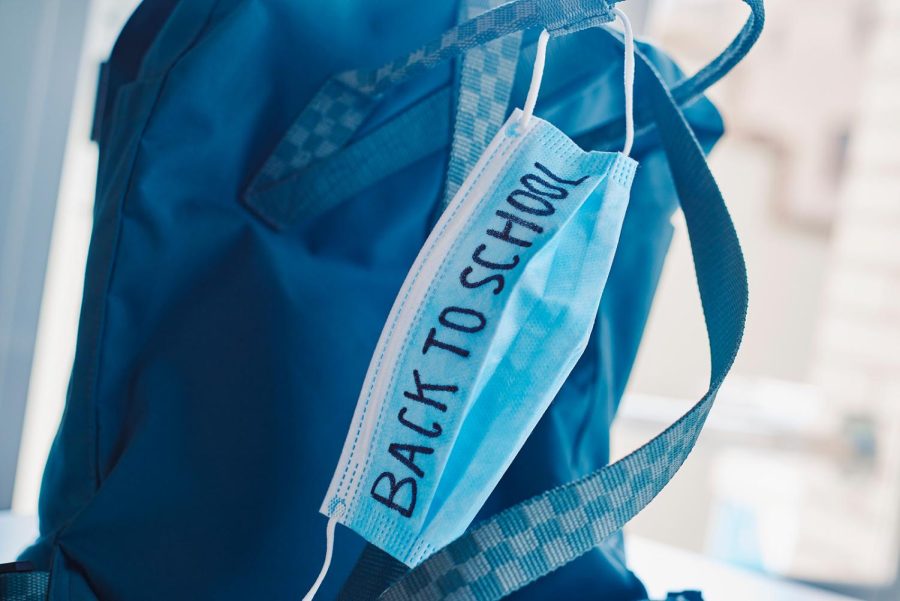Op-Ed: COVID-19’s Impact on Teenagers is Deeper Than You Think
We need to acknowledge how hard this school year has been, mentally and emotionally. Honestly, I believe it may be even more challenging than the 2020-2021 school year.
For this reason alone, I applaud the School’s effort to keep us in person, and I genuinely believe it is the best option for the foreseeable future.
All year, I have found myself with a similar thought: “I am physically a junior—mentally, a freshman.”
My only normal high school experience was my first few months of freshman year, but I feel especially for the current sophomores and freshmen who didn’t even get that experience. Beginning with the Class of 2020, each grade has had a wildly different experience, and that’s been incredibly hard to swallow.
From the beginning, I’ve believed that the pandemic will hit teenagers the hardest. There are some experiences that you can never get back. High school is the time to learn and develop as a person. To do so, you need experiences like playing as a team, studying in groups, performing on stage, having fun with friends—just being a teen.
Since 2020, I have frequently gone to bed with the thought that tomorrow morning all of the above might be taken away from me in a blink of an eye, which scares me.
But I know I’m not alone. There is no ignoring the pandemic’s impact on teens’ mental health, especially in regards to school.
I remember one night during the pandemic when I was feeling particularly overwhelmed. My mom shared something that put everything I was feeling into words: child psychologist and author Lisa Damour’s Facebook post titled “Why is Your Teenager So Tired?”
“Under normal conditions, each school year helps kids build capacity to do more and harder work than in previous years (think strength training),” Damour wrote. “There was no slack in this system before the pandemic.”
Damour explained that no school should have even attempted to keep building academic skills during the peak of the pandemic and virtual learning.
“This means that high schoolers are trying to lift eleventh-grade work (for example) with mid-ninth or tenth-grade muscle,” Damour said.
I am beyond grateful that teachers took care of us during the difficult 2020-2021 school year. Classes were less frequent, and most of my tests were open-book to account for concurrent learners.
Of course, when things went back to a pre-pandemic schedule and curriculum at the start of the year, I was thrilled.
But it was a shock to suddenly go into a normal junior year, which, even under normal circumstances, is frequently discussed as the most challenging. I was going into this with just a slightly elevated freshman stamina level.
Just as I finally began to feel readjusted, the Omicron surge hit, and suddenly conversations of the potential of shutting down again floated around my classrooms.
I want to emphasize that I completely understand the severity of the pandemic. The second the School says being in-person is a significant health risk for us, I will listen to them without a second thought.
But we can’t forget about the mental and emotional risks, especially this year.
When we returned from winter break, things were scary. More of my classmates were testing positive than ever, and so were the teachers. It was a tough challenge, and it seemed to be setting us behind again.
Yet, we knew that it was safe anyone who tested positive to return after a five-day quarantine, and without lingering symptoms. I’d take a five-day absence over an unknown complete shutdown any day.
Still, I heard my classmates asking, “Why are we even in school right now?” And “what’s the point?”
If I ever went back to complete online learning, I’m not sure how I would bounce back.
Fortunately, cases dropped in Massachusetts since the Omicron surge, but the fear is always in the back of our minds. Due to this lingering anxiety, the most important thing we can do right now is to be grateful for how far we’ve come—while also being gentle with ourselves as we try to continue on—instead of constantly fretting about the worst-case scenario that our minds can create.
I have so much hope that things are better. We need to be positive about going forward, not backward. At this point, there is no going back.

























































